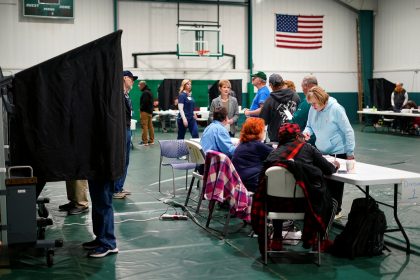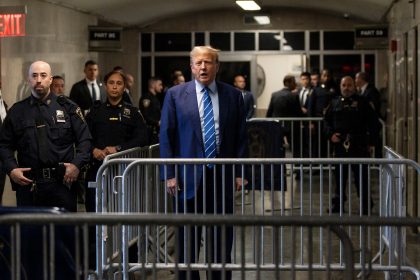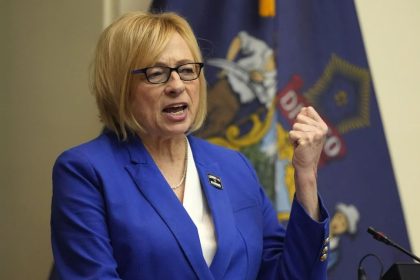In North Carolina, Democrats Are Pushing for End to Partisan Gerrymandering

RALEIGH, N.C. – Democrats are used to long odds in the Republican controlled legislature, and perhaps that explains why 26 of them have decided to advance a plan to put control of the state’s upcoming redistricting effort in the hands of an independent commission.
House Bill 437, otherwise known as the Fair Maps Act, seeks to amend the state constitution by taking the power of congressional and legislative redistricting from politicians and transferring the responsibility to an independent redistricting commission.
Under the proposal, a 15-member commission composed of an equal number of Democrats, Republicans, and independents would hold at least 20 public hearings before actually sitting down to start drawing district lines.
Adoption of draft district lines would require the vote of at least nine members of the new body, including the support of at least three members from each of the body’s political factions.
Significantly, the state legislature would have no say in the finalized map.
The stakes couldn’t be higher. Partisan map-making has been used by both parties to lock in legislative majorities.
The question now is whether the GOP majority in the North Carolina General Assembly will support the change to an independent redistricting commission, a change that could dramatically alter their current lock on power.
Several years ago, two of the most powerful men in the state legislature — House Speaker Tim Moore and Senate President Pro Tem Phil Berger — both sponsored similar bills. However, there is a major difference between then and now.
When Moore and Berger sought an independent redistricting commission, Democrats controlled the legislature.
Last November, fresh off a vote of confidence from the state’s then newly re-elected House Republican majority, Moore predicted the upcoming redistricting process will look a lot like the process used in 2019, after a court ordered the General Assembly to redraw gerrymandered maps.
For that redraw, lawmakers still had control of the lines, but the process was live streamed online, so that the public could watch as the redistricting played out.
“[We’ll] probably use that as a starting point,” Moore told reporters during a press conference to announce the re-election of the GOP’s leadership slate in the North Carolina House of Representatives.
Berger has reportedly said much the same thing.
Neither responded to a request for comment from The Well News.
As for the Democrats, they’re uniform in their support of the new measure, a cause they’ve championed in the recent past with no success.
House Democratic Leader Robert Reives told The Well News on Friday that the legislation is intended to empower citizens to select the elected officials of their choice.
“Good government is where our citizens choose their elected representatives and, right now, the reverse is happening,” Reives said. “This legislation is intended to allow citizens the power to choose their elected officials—not the other way around.”
“It would reflect people’s values more if we had a legislature elected from fair maps,” said Rep. Pricey Harrison, the bill’s lead sponsor. “And I don’t know when the last time that was. Decades? I don’t like to act like my party wasn’t the same. But the technology is much more sophisticated now.”
State Rep. Grier Martin, whose district encompasses the city of Raleigh, said “throughout our history, Democrats and Republicans have drawn districts to further their own partisan interests. It’s way past time that we give the power to draw districts to the people.”
He added that he doesn’t know if any of his colleagues across the aisle are ready to commit to supporting the bill, but noted “similar legislation has passed the House under Republican control in the recent past.”
Harrison agreed, but said “Like most other GOP-led legislatures across the country, their focus now seems to have turned to ‘election integrity.’”
Among the outside groups trying to bolster the measure’s chances is Common Cause North Carolina, which is currently asking state residents to sign an online petition supporting it.
“For far too long North Carolina voters have been forced into gerrymandered voting districts that have unconstitutionally targeted voters of color or unfairly divided voters based on partisan politics,” the group says on its website. “As it stands now, politicians are choosing their voters instead of the other way around. It’s time to end gerrymandering for good.
“Luckily, there’s a solution. Named the Fair Maps Act, House Bill 437, recently filed in the NC General Assembly,” the blurb says.
It goes on to say the measure would take the power of redistricting away from politicians in Raleigh and give it to an independent commission of everyday North Carolinians.
“The commission would have an equal number of Republicans, Democrats and Unaffiliated voters and would draw maps that protect communities and are free from political influence,” Common Cause says.
The group is also actively promoting the House Bill on Twitter, often in posts that feature Rep. Grier and other Democratic lawmakers.
Twenty-one states have adopted some form of independent commissions for congressional and/or legislative redistricting, some of which were approved by voters through ballot measures.
If approved by the General Assembly, the proposed amendment would go before voters as a ballot measure in 2022—or long after the legislature would ordinarily begin the 2021 redistricting process.
However, this year, when that process will actually begin is unknown. The U.S. Census Bureau has said it won’t provide states with much of the specific data they need to draw their new maps until late September.
























